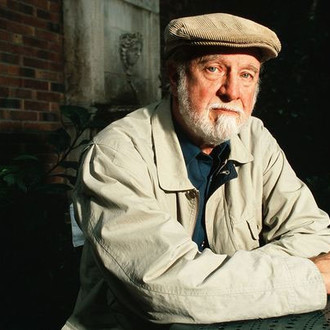
en
Ричард Матесон
ru
- 6
Richard Matheson
Автор
4 января 1978 — 23 июня 2013
Все подписки находятся в «Моих книгах». Также вы можете настроить пуши про новые книги в приложении
Отписаться
Born in Allendale, New Jersey to Norwegian immigrant parents, Matheson was raised in Brooklyn and graduated from Brooklyn Technical High School in 1943. He then entered the military and spent World War II as an infantry soldier. In 1949 he earned his bachelor's degree in journalism from the University of Missouri and moved to California in 1951. He married in 1952 and has four children, three of whom (Chris, Richard Christian, and Ali Matheson) are writers of fiction and screenplays.His first short story, "Born of Man and Woman," appeared in the Magazine of Fantasy and Science Fiction in 1950. The tale of a monstrous child chained in its parents' cellar, it was told in the first person as the creature's diary (in poignantly non-idiomatic English) and immediately made Matheson famous. Between 1950 and 1971, Matheson produced dozens of stories, frequently blending elements of the science fiction, horror and fantasy genres.Several of his stories, like "Third from the Sun" (1950), "Deadline" (1959) and "Button, Button" (1970) are simple sketches with twist endings; others, like "Trespass" (1953), "Being" (1954) and "Mute" (1962) explore their characters' dilemmas over twenty or thirty pages. Some tales, such as "The Funeral" (1955) and "The Doll that Does Everything" (1954) incorporate zany satirical humour at the expense of genre clichés, and are written in an hysterically overblown prose very different from Matheson's usual pared-down style. Others, like "The Test" (1954) and "Steel" (1956), portray the moral and physical struggles of ordinary people, rather than the then nearly ubiquitous scientists and superheroes, in situations which are at once futuristic and everyday. Still others, such as "Mad House" (1953), "The Curious Child" (1954) and perhaps most famously, "Duel" (1971) are tales of paranoia, in which the everyday environment of the present day becomes inexplicably alien or threatening.He wrote a number of episodes for the American TV series The Twilight Zone, including "Steel," mentioned above and the famous "Nightmare at 20,000 Feet"; adapted the works of Edgar Allan Poe for Roger Corman and Dennis Wheatley's The Devil Rides Out for Hammer Films; and scripted Steven Spielberg's first feature, the TV movie Duel, from his own short story. He also contributed a number of scripts to the Warner Brothers western series "The Lawman" between 1958 and 1962. In 1973, Matheson earned an Edgar Award from the Mystery Writers of America for his teleplay for The Night Stalker, one of two TV movies written by Matheson that preceded the series Kolchak: The Night Stalker. Matheson also wrote the screenplay for Fanatic (US title: Die! Die! My Darling!) starring Talullah Bankhead and Stefanie Powers.Novels include The Shrinking Man (filmed as The Incredible Shrinking Man, again from Matheson's own screenplay), and a science fiction vampire novel, I Am Legend, which has been filmed three times under the titles The Omega Man and The Last Man on Earth and once under the original title. Other Matheson novels turned into notable films include What Dreams May Come, Stir of Echoes, Bid Time Return (as Somewhere in Time), and Hell House (as The Legend of Hell House) and the aforementioned Duel, the last three adapted and scripted by Matheson himself. Three of his short stories were filmed together as Trilogy of Terror, including "Prey" with its famous Zuni warrior doll.In 1960, Matheson published The Beardless Warriors, a nonfantastic, autobiographical novel about teenage American soldiers in World War II.He died at his home on June 23, 2013, at the age of 87http://us.macmillan.com/author/richar…
больше